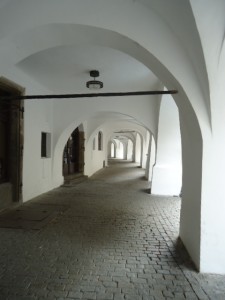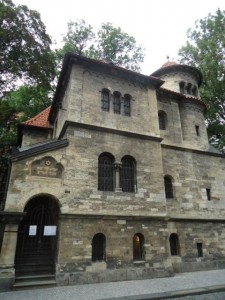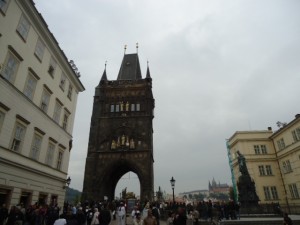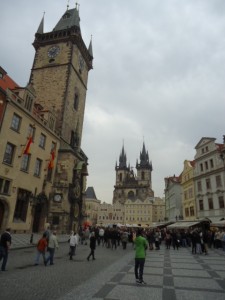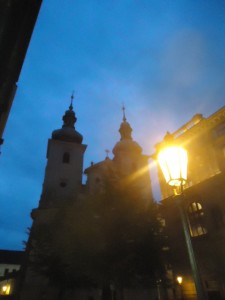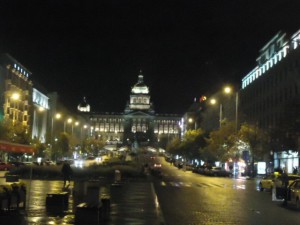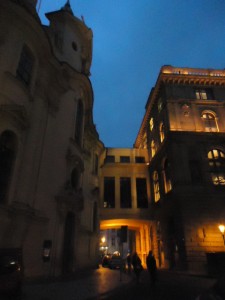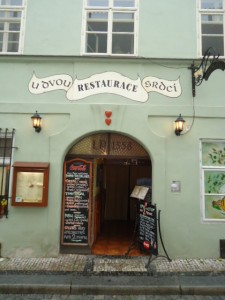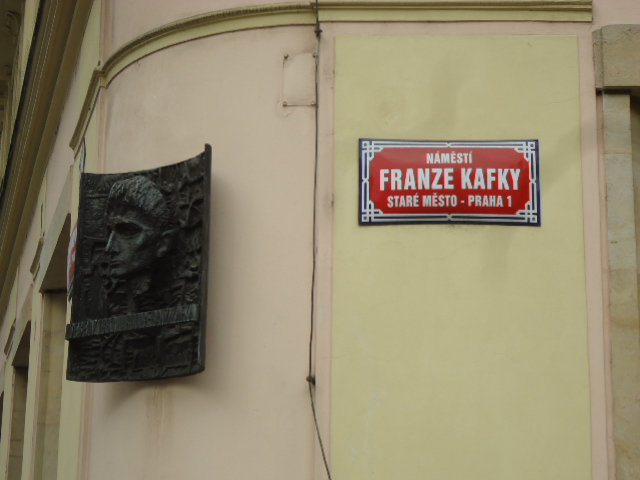‘Ancient folio of stone parchments,
city-book in whose pages there is
“still so much to be read, to dream, to understand”,
city of three peoples (Czechs, Germans and Jews)
and, according to Breton, the magic capital of Europe.
Most of all Prague is a breeding ground for phantoms, an arena of sorcery, a source of Zauberei, or kouzelnictvi (in Czech), or kishef (in Yiddish).
It is a trap which – once it takes hold with its mists, its black arts, its poisoned honey – does not let go, does not forgive. “She never ceases to enchant with her magic spells,” wrote Arnošt Procházka, “the old she-devil Prague.”
‘Do not go there if you are seeking unclouded happiness.
She grabs and burns with her sly glances; she bewitches and transforms the unwary who enter her walls.
After going bankrupt, the occultist banker Meyer became the charlatan mystic Meyrink, a writer of spiritualistic stories.
I too writhe bewitched inside her opaque crystal ball like the Pierrot who pines in a bottle in a Meyrink story. I have sold her my shadow, as Peter Schlemihl sold his to the devil.
In exchange, however, she rewards me with the highest interest: she is the Klondyke of my spirit, an extraordinary pretext for my verbal whims, for my Nachtstücke.I often recite these verses by Nerval to her:
I bend over forgotten corners Prague
Woven by your gloomy splendour
smoke of inns in which the chirping of birds is lost
evening like a harmonica player makes the weeping doors creak
long fat keys lock up indecipherable things
and footsteps scatter like a broken rosary.
From the evocative urban elegy Magic Prague, by Angelo Maria Ripellino (translated from the Italian by David Newton Marinelli, ed by Michael Henry Heim, Picador, 1994, p. 6.).

